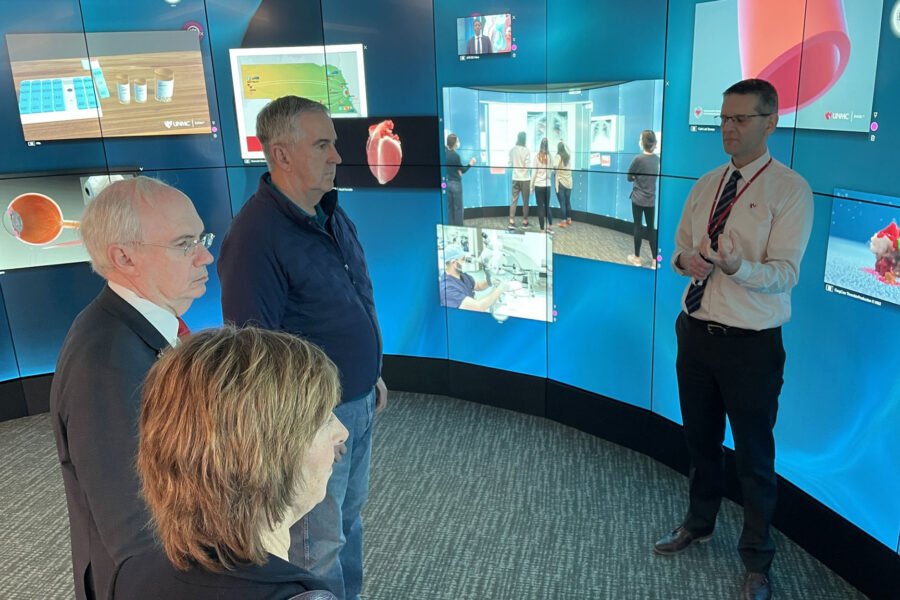Gen. John E. Hyten, USAF (Ret.), the former vice chairman of the Joint Chiefs of Staff, and his wife, Laura Hyten, recently visited and toured UNMC.
The Hytens met with Lt. Col. Elizabeth Schnaubelt, MD, director of C-STARS (Center for Sustainment of Trauma and Readiness Skills)-Omaha, and joined Vice Chancellor for External Relations Chris Kratochvil, MD, and James Lawler, MD, for a tour of the Training, Simulation and Quarantine Center in the Global Center for Health Security. They later toured the building housing the Negatively Pressurized CONEX, a piece of equipment developed to be placed within a military plane for infectious disease aeromedical transport.
UNMC Chancellor Jeffrey P. Gold, MD, met with the Hytens to tour the Fred & Pamela Buffett Center Center, and the day at UNMC ended with a tour of the educational simulation spaces showcased by the Davis Global Center’s iEXCEL program.
Gen. Hyten had been involved with UNMC from 2016 in his various roles, but the visit was his first time seeing the completed Davis Global Center and Global Center for Health Security.
“Nebraska’s doing things the whole country should be doing,” he said. “We continue to try to learn from that, and I continue to advocate for moving our capabilities forward as a country. We just try to keep learning and carrying the message forward.”
The military has moved from analog to digital simulations through the years, as well.
“When I joined the service, the simulators back were analog and hardware-in-the-loop” he said. “They were run by hydraulics, and you’d run an aircraft crew through various scenarios with people and machines literally moving (the simulator) manually.
“Today, with a fifth-generation fighter, there isn’t a way to experience failures on a day-to-day basis. The only way to experience that is through a digital simulator. And that is what we built. And in the medical community, it makes perfect sense to practice disasters on a digital simulator, not on a patient. Nebraska’s doing that, which is awesome.”
